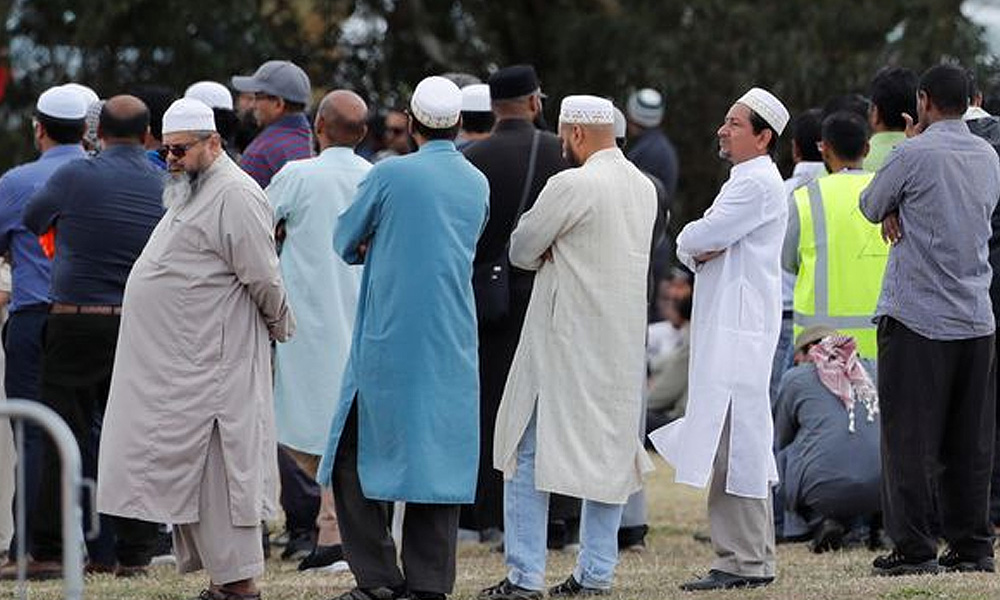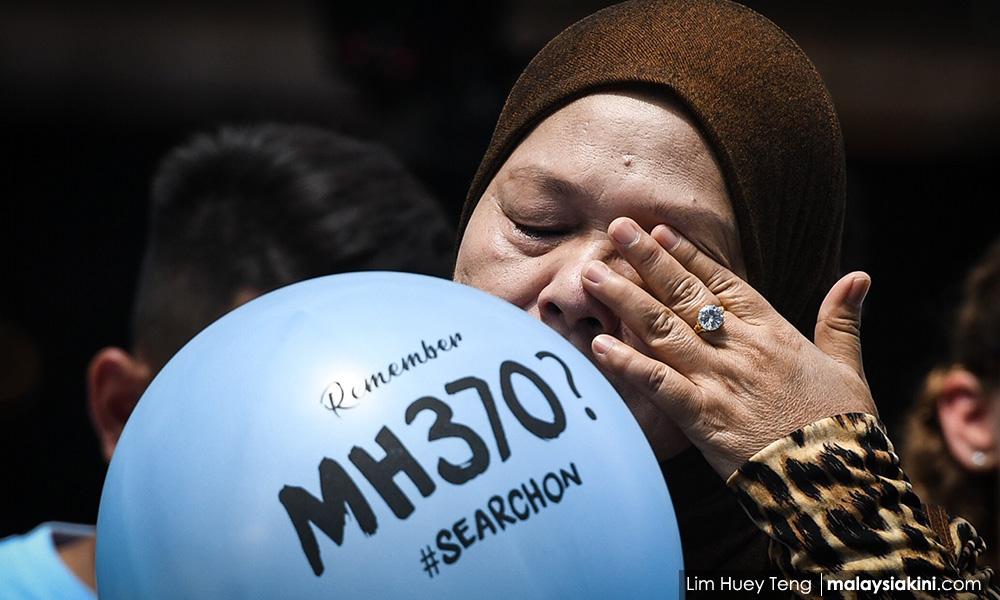
Why do Muslims seem more affected by the death of their own kind compared to non-Muslims?” asked a friend of mine on the day the Internet went crazy following the shooting in Christchurch.
I stared at him like a blur sotong.
“Look at how Muslims are boiling up following the recent massacre in the mosque in Christchurch. How come they did not have the same reaction when Jews were killed in the synagogue shooting in Pittsburgh last October?
“Ah,” I replied, not showing much interest in his questions.
“Haven’t you seen how Malaysian Muslims seem more worked up with the death of Rohingya Muslims in Myanmar, Uighur Muslims in China and not forgetting the Palestinian Muslims? Now compare that with any kinds of subjugation faced by any non-Muslims around the world!
“Even road accidents involving Muslims get more sympathies from Malaysian Muslims compared to the non-Muslims. It sickens me, really!”
I nodded – not as a sign of agreement but more of acknowledging his points.
“Remember the case of Adib, the firefighter who died following the Seafield Sri Maha Mariaman Temple fracas – do you think the Malaysian Muslims would be so worked up if he wasn’t a Muslim?”
I took a deep breath and decided to answer his series of questions with a series of questions.
“I have been to hawker stalls around Penang at peak hours when there are no empty tables available. While I spend ten, fifteen minutes standing there by myself, holding my tray of food, plenty of times I have stumbled upon Chinese customers who wave their arms in the air calling for other Chinese customers to occupy the table they are about to leave empty, totally ignoring my presence. Now, why do you think a Chinese cares more about their own kind than others?” I asked.
“Maybe they know each other?” my friend mumbled.
“Okay. I once visited a hair salon in Kuala Lumpur where all the hairdressers were Chinese. I was asked to take a seat and wait for my turn while the hairdressers attended other walk-in Chinese customers who came much later than I did. Why do you think the Chinese hairdressers gave more priorities to their own kind?” I asked, again.
“Maybe they are regular customers,” he replied.
“Fine. My friend, a non-Chinese, joined a shipping company some time ago, fresh from college. Six months later, a new recruit joined the company – a Chinese girl with similar qualifications as my friend. But guess what, the new recruit was offered a higher salary by their Chinese employer. Now, care to tell me why Chinese deem their own kind more special than the rest?” I pestered.
“Look, there could be lots of reasons for that. For example, maybe the new recruit’s proficiency in Mandarin is seen as a plus point!” he said.
I smiled. “Right.”
“Wow,” he chuckled sarcastically. “I guess the truth is too painful to swallow, huh? After all, you are also a Muslim.”
“Can I ask you something?” I asked in an attempt to prove my point.
“Sure.”
“Did you read about the Ethiopian Airlines Flight ET302 which had crashed earlier this month, killing all 157 people on board?”
“Of course I did.”
“How did you feel about the incident?”
“It was a tragedy, of course. Why do you ask?”
“Well, if it was a tragedy and you feel deeply about it, how come you do not sound too sad about it?” I asked.
“What do you mean?”

“Back in 2014 when Malaysia Airlines Flight 370 disappeared, you seem very affected by the incident, posting and commenting non-stop on your social media about how shocked and devastated you were of the incident. Even when Malaysia Airlines Flight 17 was shot down, you seem terribly affected as well. How come you are not as sad about the Ethiopian Airline’s tragedy?
“Are the lives of those people on board the Ethiopian Airlines not as valuable as those on board Malaysia Airlines?” I asked.
He took a deep breath and said, “That’s because I am Malaysian. As a Malaysian, surely any tragedy involving a Malaysian airline would affect me more than a foreign airline.”
“Precisely. That is how we humans are wired. We feel more for those whom we are affiliated to. As Malaysians, we feel more connected to anything Malaysian. Likewise, a Muslim feel more connected to those of the same faith. That doesn’t necessarily mean Malaysians do not sympathise with non-Malaysians as much as it doesn’t mean Muslims have no compassion towards the non-Muslims.”
My friend stared at me for a moment and responded, “No, it’s not the same. Malaysians feeling more towards other Malaysians or anything Malaysian just demonstrates a sense of belonging. However, a Muslim standing up for other Muslims only demonstrates a herd mentality.”
Aiyoh.
It is never easy to explain things when one is overcome with anger and isn’t able to think rationally.
Humans are tribal
The truth which my dear friend and many others like him in this beloved land of ours have failed to see is the fact that people like you, me and him are born with tendencies to congregate with those who share similar characteristics like ourselves. We are homophily after all – we form social ties with those similar to us.
At our core, we humans are tribal. We find a sense of belonging, of unconditional pride, in our social identities. We subconsciously identify who is “us” and “them” – and this is why we get excited when we hear a similar accent to our own in a foreign land or when we learn that someone we bumped into is from our own hometown.
This explains why Muslims feel more attached to other Muslims; Chinese to other Chinese; Penangites to other Penangites; liberals to other liberals; minorities to other minorities; feminists to other feminists; homosexuals to other homosexuals; Metallica fans to other Metallica fans; vegans to other vegans; cat lovers to other cat lovers.
But there is nothing wrong when one feels attached to their own ‘tribes’. In fact, tribalism comes more naturally to us than any other way of life.
Tribalism can get toxic
However, when our tribalism spirals toward conflict, turning people of different tribes into rivals and enemies, then we have a toxic problem at hand.
Toxic tribalism comes in many forms such as discrimination, not entertaining contradictory ideas, being closed-minded, and also labelling those of a different tribe with derogatory remarks.
A Muslim donating to a mosque or a Christian donating to a church is not toxic; but Muslims demanding Christians to bring down the ‘cross’ sign from a church, is.
A Chinese contributing to a Chinese school or a Chinese association is not toxic; but a Chinese employer paying higher salary to his/her Chinese employee is.
An Indian only visiting Indian stores or Indian restaurants for his/her needs is not toxic; but an Indian who is renting out his/her house to only other Indians is.
More than often, those who are engrossed in toxic tribalism are unconscious of their toxic behaviour – or at least they pretend to be.
Come to think of it, toxic tribalism also includes those who become angry, bitter and resentful towards the attachment experienced by others of a different tribe towards one of their own – as clearly demonstrated by my dear friend.
In other words, a Muslim feeling devastated about the death of other Muslims is not toxic, but a non-Muslim spinning hatred towards Muslims who mourn the death of one of their own, is.
FA ABDUL is a passionate storyteller, a growing media trainer, an aspiring playwright, a regular director, a struggling producer, a self-acclaimed photographer, an expert Facebooker, a lazy blogger, a part-time queen and a full-time vainpot. - Mkini



No comments:
Post a Comment
Note: Only a member of this blog may post a comment.